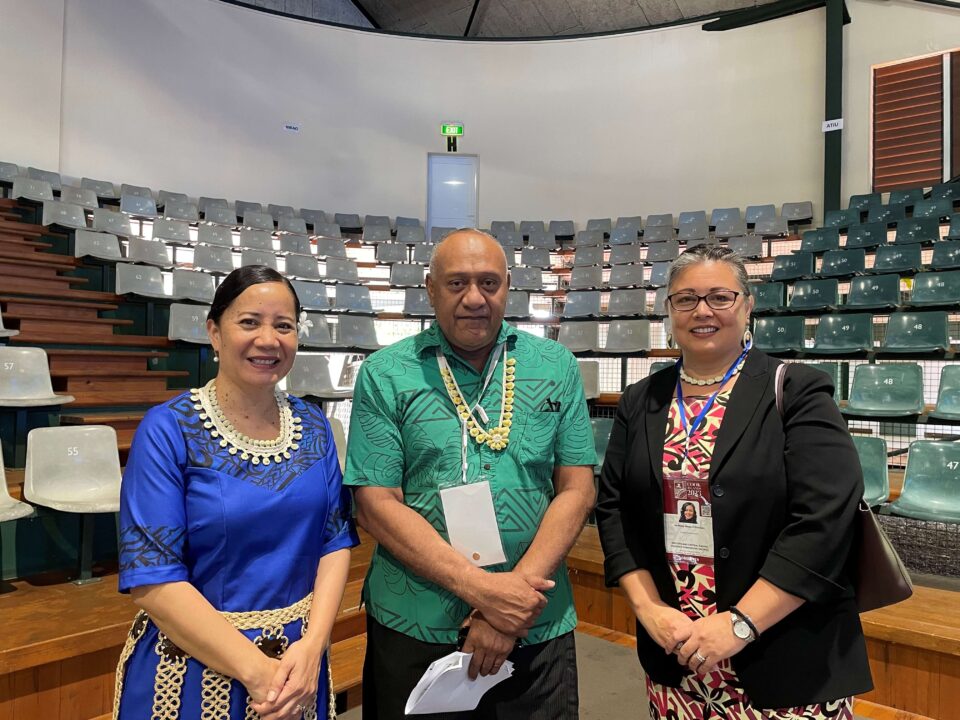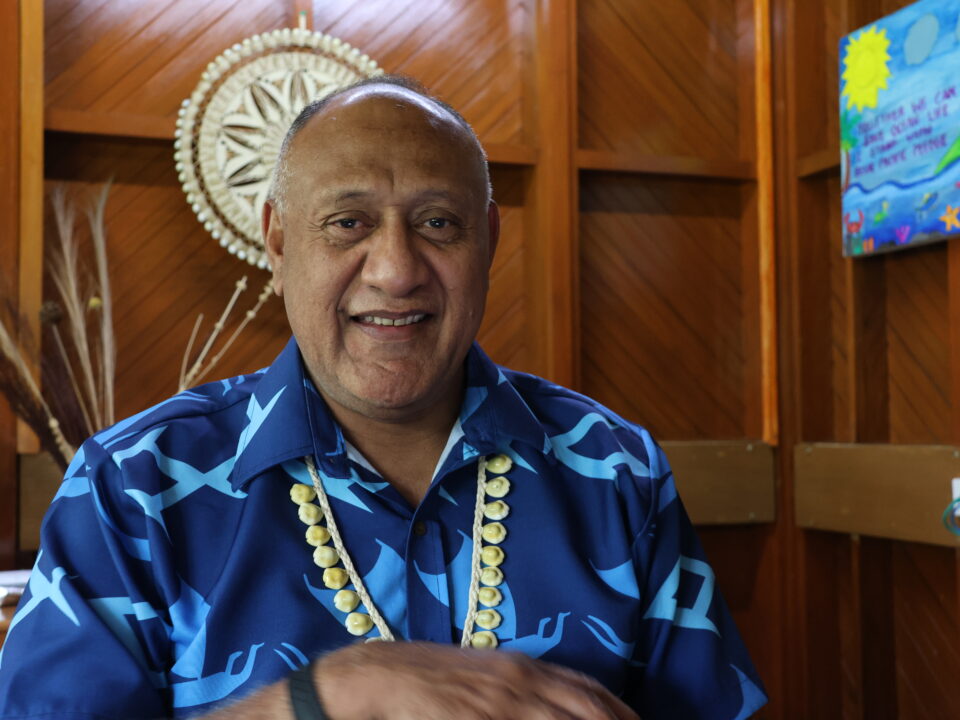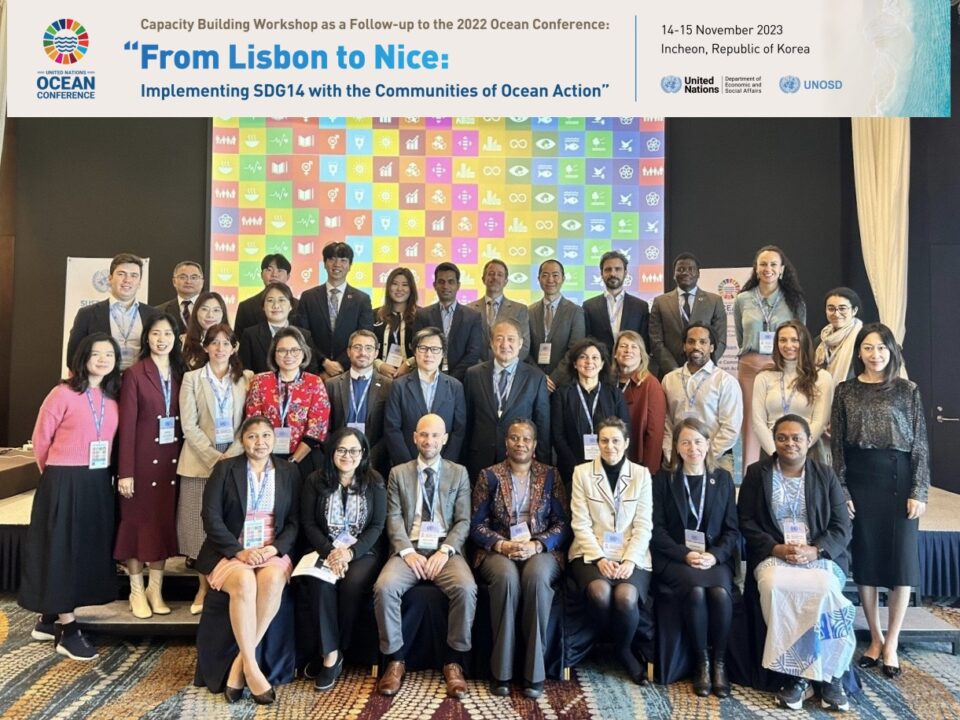
As negotiation intensifies this week, Pacific negotiators remain united in asserting the region’s collective interest to ensure they are well protected in the new global treaty on marine biodiversity beyond national jurisdiction (BBNJ).
Analysing how the first week of negotiations panned out, the Manager and Ocean Analyst for the Office of the Pacific Ocean Commissioner, Peni Suveinakama told PACNEWS in New York that there is ‘strong solidarity within the Pacific group in pushing the collective interests of the region.’
“We see that they are taking time to have discussions in the corridors, taking time to have discussions in the room to iron out few things. I think there is very much solidarity within the group and the group is going strong in terms of pursuing the collective interests of the Pacific.
“I think the delegates are clear on that. We have the New York based delegates and we have the capital based delegates but they are clear that the collective interest of the Pacific is paramount to everything else. They are treading carefully through other groupings such as the Alliance of Small Island States (AOSIS), as well as G77. But I think the Pacific will be going strong in the next IGC as they have been going strong for the last past four years, said Suveinakama.
The Office of the Pacific Ocean Commissioner through the Pacific Ocean Alliance (POA) has brought in technical and legal experts from within and outside the region to aid Pacific negotiators at BBNJ IGC3.
“I think this is an important undertaking mandated by the United Nations General Assembly and the Pacific Islands Forum Leaders that called for all Forum mechanisms to provide necessary support for our negotiators.
“For us it’s constantly improving the processes that we follow, improving the co-ordination mechanisms to ensure the information from the experts are flowing to the Member States. The main reason the experts are here, co-ordinated through the office of the Pacific Ocean Commissioner, is because of the multi-stakeholder and multi-sectoral nature of BBNJ, involving all regional players.
Member States, Suveinakama said are responding positively to the panel experts from the Pacific.
“They are eager to learn of the regional approaches and off course national governments have their own processes, national laws and policies. Just one classic example is the Environmental Impact Assessment (EIA), one of the elements in the negotiations. The Secretariat of the Pacific Regional Environment Programme (SPREP) has developed a regional guideline that unifies national laws of the Pacific and is something that we can see that national governments have used to construct their own EIA processes.
He said negotiations remains fluid at this stage and expects some general consensus as the week proceeds.
“I think the Pacific is getting most of their issues that they’ve mutually agreed to as Pacific Small Island Developing States (PSIDS) within the Pacific Islands Forum (PIF) membership within the text. We are at a stage now where the President has put up a text compilation of the treaty including all the proposals, bearing in mind that there are bracketed text that will need to be debated between now and IGC4.
One of the key issues for the Pacific is protecting Member States fisheries interest.
“We understand most of the economies in the region rely heavily on fisheries and that is one area that Pacific delegates are ensuring will be protected – particularly the existing configuration and existing measures that are already in place through the Pacific Islands Forum Fisheries Agency (FFA) and the Western and Central Pacific Fisheries Commission (WCPFC).
“Another key important issue is benefit sharing. The question is how the Pacific can maximise gains from this benefit sharing mechanism that they are trying to put in place through this agreement, said Suveinakama.
On the issue of capacity building and technology transfer, Pacific countries are asking for a level playing field so they can have access through benefit sharing.
“We understand most of the developed countries will have the capacity to go out to areas beyond national jurisdiction to carry out marine scientific research and also have access to marine genetic resources which will be governed under this agreement. It’s about creating a level playing field for Pacific Island countries to also ensure we have access through the benefit sharing mechanism.
Pacific countries want to have a say in what conservation measures are being put in place outside of their national jurisdictions.
“I think that is in line with what our Leaders are envisaging for our Blue Pacific – of having that control over the blue continent that we have. I think one other aspect I can say is the overall intention of the convention, which is conservation of marine biological biodiversity. The developed countries want free and open access to everything while the Pacific wants to ensure measures and checks and balances are in place that will that protects genetic materials being taken out and that there are some sort of returns for developing countries.
Suveinakama said traditional knowledge is another strong negotiating position of Pacific countries.
“It’s a unique position for the Pacific. We are pushing not only for the use of traditional knowledge for commercial use by external partners and stakeholders but there must be some level of accountability to be put in place. We also understand the sensitivity in sharing of information by traditional knowledge holders but off course it must complement science. The Pacific is pushing for traditional knowledge as a complement but not a subset to further enhance available science, said Suveinakama.
The third Intergovernmental Conference on BBNJ ends on Friday this week.
PACNEWS coverage of the BBNJ IGC 3 in New York is made possible with funding support from the New Zealand Government through the Office of the Pacific Ocean Commissioner (OPOC).
Published: PACNEWS



